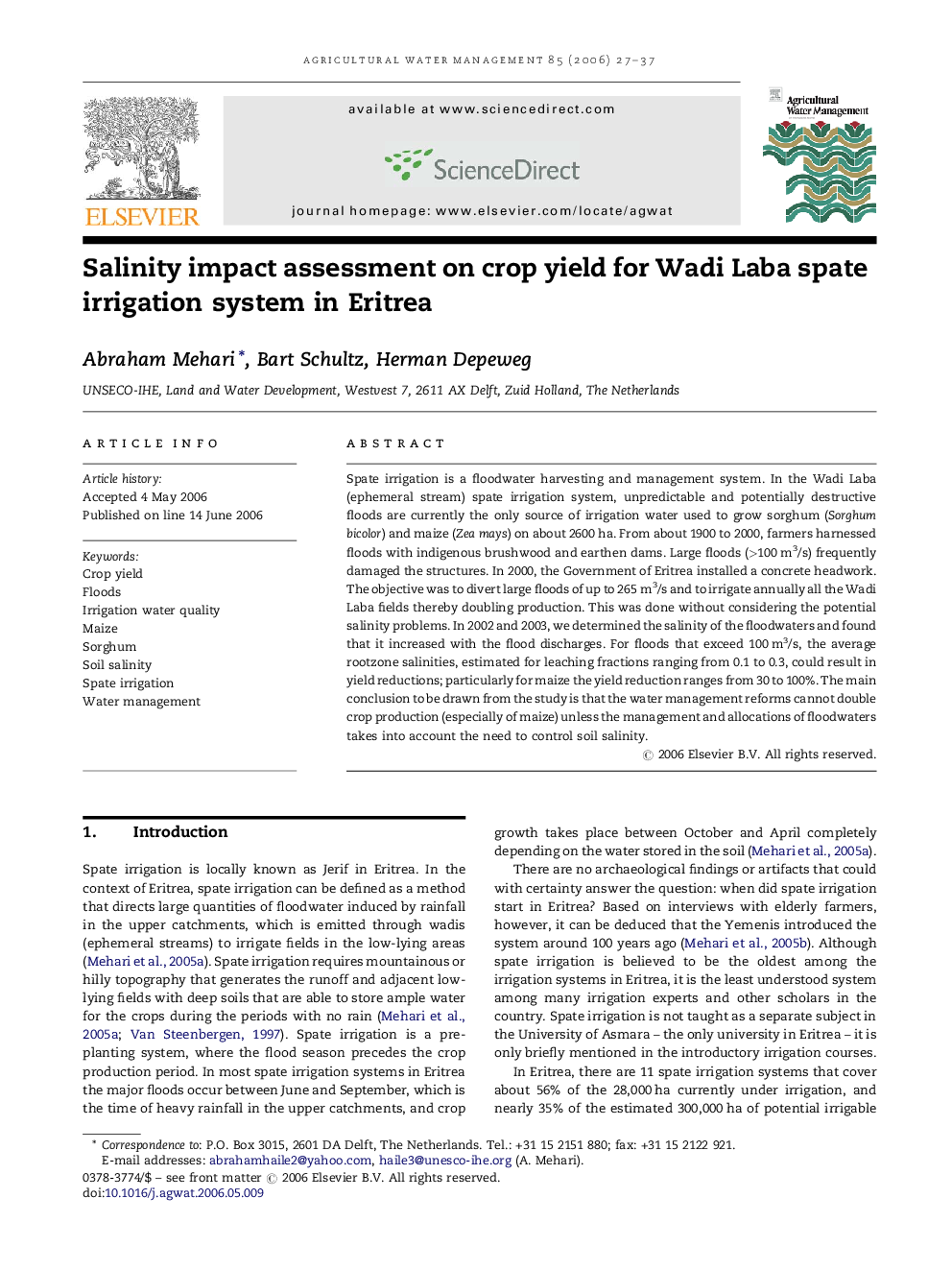| کد مقاله | کد نشریه | سال انتشار | مقاله انگلیسی | نسخه تمام متن |
|---|---|---|---|---|
| 4480462 | 1622987 | 2006 | 11 صفحه PDF | دانلود رایگان |

Spate irrigation is a floodwater harvesting and management system. In the Wadi Laba (ephemeral stream) spate irrigation system, unpredictable and potentially destructive floods are currently the only source of irrigation water used to grow sorghum (Sorghum bicolor) and maize (Zea mays) on about 2600 ha. From about 1900 to 2000, farmers harnessed floods with indigenous brushwood and earthen dams. Large floods (>100 m3/s) frequently damaged the structures. In 2000, the Government of Eritrea installed a concrete headwork. The objective was to divert large floods of up to 265 m3/s and to irrigate annually all the Wadi Laba fields thereby doubling production. This was done without considering the potential salinity problems. In 2002 and 2003, we determined the salinity of the floodwaters and found that it increased with the flood discharges. For floods that exceed 100 m3/s, the average rootzone salinities, estimated for leaching fractions ranging from 0.1 to 0.3, could result in yield reductions; particularly for maize the yield reduction ranges from 30 to 100%. The main conclusion to be drawn from the study is that the water management reforms cannot double crop production (especially of maize) unless the management and allocations of floodwaters takes into account the need to control soil salinity.
Journal: Agricultural Water Management - Volume 85, Issues 1–2, 16 September 2006, Pages 27–37